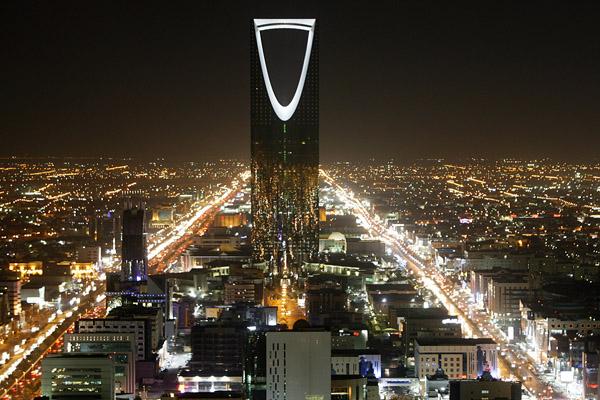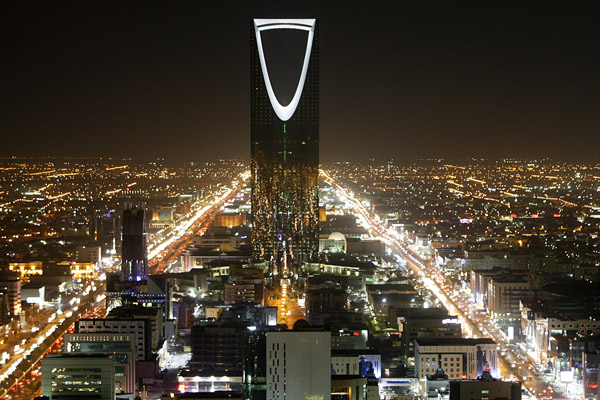
By Marwa Rashad and Andrew Torchia of Reuters
The Saudi Arabian government last month awarded $22.5 billion in contracts to three foreign-led consortia for the design and construction of a metro rail system in the capital Riyadh.
The project, which will involve six rail lines extending 176 kilometres (110 miles) and carrying electric, driverless trains, is the world's largest public transport system currently under development, Saudi officials said.
U.S. construction giant Bechtel Corp heads a group which won a $9.45 billion contract to build two lines, the government announced.
A consortium led by Spain's Fomento de Construcciones y Contratas won a $7.82 billion contract for three lines, while Italy's Ansaldo STS heads a group that won a $5.21 billion order.
Design work will start immediately and construction will begin in the first quarter of 2014, the government said. The project would be completed in 2019.
Flush with cash after more than two years of high oil prices, Saudi Arabia is pumping billions of dollars into infrastructure projects designed to improve living standards and ease social discontent in the wake of the 2011 uprisings elsewhere in the Arab world.
Last August, the government approved a $16.5 billion plan to modernise the transport system in the holy city of Mecca, including building a bus network and a metro system.
It is also building several other rail systems, including a 2,750 kilometre line running from Riyadh to near the northern border with Jordan.
Saudi officials said Riyadh's population was projected to grow from six million to more than eight million in the next 10 years, making the metro vital to ease congestion and pollution in the capital's streets.
In addition to raising living standards, the government says it wants to upgrade the country's infrastructure to help the economy diversify beyond oil, making it less vulnerable to any future plunges in global oil prices.
Kingdom to spend $800 million on metro
Saudi Arabia plans to spend about three billion riyals ($800 million) acquiring land in Riyadh to build the capital's first metro rail system, the official in charge of the project told Reuters.
"This is already budgeted, and we are talking about three billion riyals compensation for the land to be acquired," says Ibrahim Bin Muhammad Al Sultan, president of the Arriyadh Development Authority, the state body handling the project.
"The land is already chosen and the teams already started the process three months ago."
Last month, the government awarded $22.5 billion in contracts to three foreign-led consortia for the design and construction of the system. The project will involve six rail lines extending 176 kilometres (110 miles) and carrying electric, driverless trains.
Design work will start immediately and construction will begin in the first quarter of 2014, the government says. The project is expected to be completed in 2019.
Al Sultan says land will be acquired for the metro in 35 locations, but he did not expect the purchases to disrupt Riyadh's real estate market.
"We are keeping the process of acquiring all land needed for the project to a minimum, so that it will not affect the huge market of Riyadh," he says.
Saudi officials have said the project is the world's largest public transport system currently under development.
Asked how the Riyadh metro would be financed and whether the authority might issue sukuk (Islamic bonds) to fund it, Al Sultan notes that when King Abdullah announced the government's budget surplus last year, he allocated 200 billion riyals of it for public transport systems in general.
This amount is already available at the central bank, Al Sultan says, without elaborating on financing options.
The project will require tens of thousands of workers, private sector companies have estimated. Assembling this labour force to complete the project on time may be a challenge, because the country has been tightening controls on its large population of foreign workers in an effort to reduce unemployment among Saudi citizens.
Al Sultan says that in the construction phase, Saudi citizens will participate via management and other positions, but operating the metro will be more important in terms of creating jobs for Saudis. Up to 90 percent of the people running the metro will be Saudi nationals, he says. Before construction starts, there will be eight months for government agencies to coordinate on obtaining the necessary foreign workers, he adds.
The project will have priority in obtaining visas for workers, but exceptions to Saudi Arabia's system of corporate quotas for foreign workers will not be made, Al Sultan adds.
Follow us on Twitter: @ALB_Magazine.
